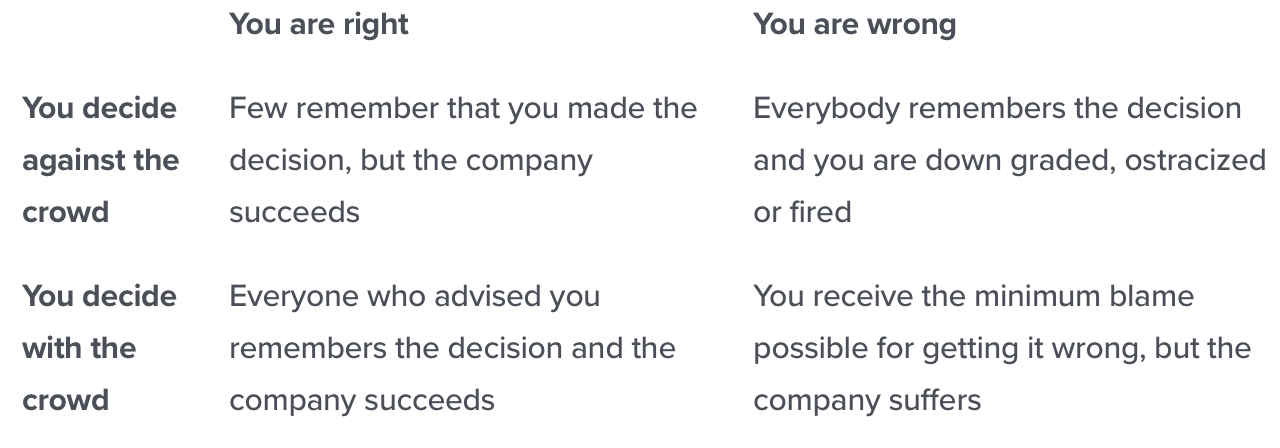Courage
The most essential quality of a leader
More than a year ago, I had a casual lunch with a senior leader at the firm. While we discussed various topics, one conversation stood out: his emphasis on courage as the single, most important quality for leaders. He believed it was so vital that he even addressed it as the commencement speaker at his high school alma mater.
Initially, I was baffled. Surely, other qualities such as authenticity, curiosity, adaptability, resilience, empathy, are just as important, if not more so.
However, over time, I began to appreciate his perspective.
I discovered that he wasn’t alone in his belief. Ben Horowtiz, co-founder of Andreessen Horowitz, articulated a similar sentiment in 2011,
“When we meet with entrepreneurs, the two key characteristics that we look for are brilliance and courage. In my experience as CEO, I found that the most important decisions tested my courage far more than my intelligence.”
Horowitz elaborated on why making the optimal but unpopular choice is often challenging for many CEOs.
The general problem can be seen in the social credit matrix described below. The expected social rewards for making the crowd-influenced decision appear better than those for making the decision that you think is right:
On the surface, it appears that if the decision is a close call, it’s much safer to go with the crowd. In reality, if you fall into this trap, the crowd will influence your thinking and make a 70/30 decision seem like a 51/49 decision. This is why courage is critical.
This courage test plays out frequently in leadership and a recent experience reminded me of this lesson.
A founding team came in to pitch our firm and they boasted impressive credentials from top universities and major tech companies.
But I was unsettled by their organisational structure, which featured two co-CEOs and I pressed them about it.
Me: “What happens if you and the other CEO disagrees?"
Co-ceo 1: “Oh, that has never happen and will never happen as we focus on different areas.”
Me: “The company is still new and down the road, disagreements are bound to happen. What happens if you and your co-CEO cannot agree on a really important decision?”
Co-ceo 1: “We will bring it to the board of directors and have them make the decision”
This exchange left me disconcerted, and I chose not to invest. Less than a year later, I read that one of co-CEOs and two of the other co-founders - 60% of the founding team - had departed, taking with them the core technical expertise that underpinned the original investment thesis.
As I read about their departure, Horowitz’s words echoed in my mind.
The right decision is often obvious, but the pressure to make the wrong decision can be overwhelming. It starts with small things…
Intellectually, it should be clear that it is easier for employees to go to one decision maker than two. It’s not really very complicated at all. Unfortunately, the clear and present social pressure often overwhelms the long-term benefits of organizing the company properly. Because the founders do not have the courage to decide who is in charge, every employee suffers the inconvenience of double approval…
Over the past 10 years, technological advances dramatically lowered the financial bar for starting a new company, but the courage bar for building a great company remains as high as it has ever been.

